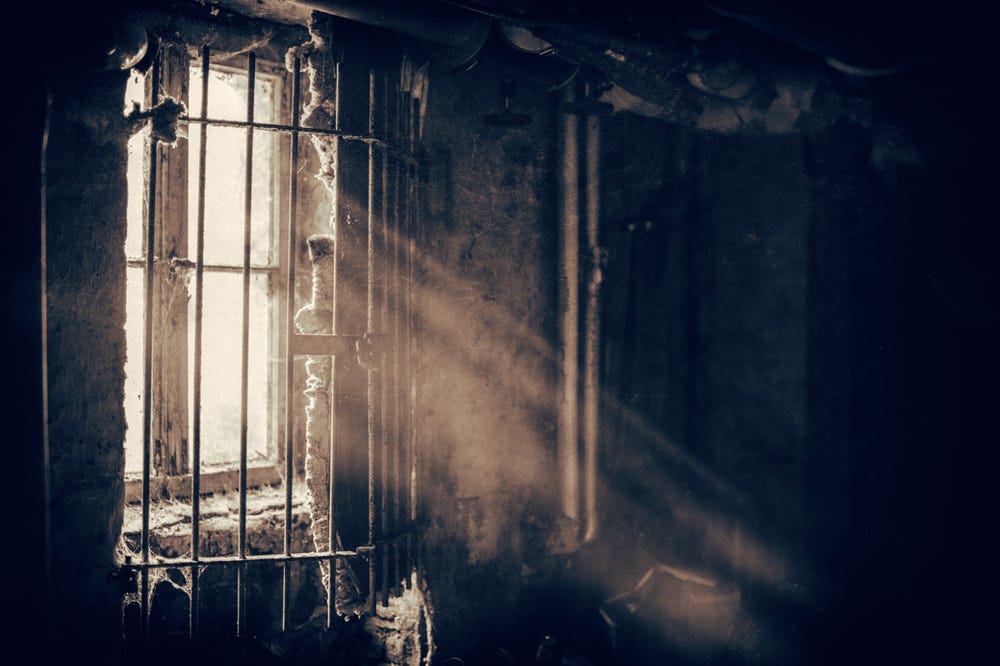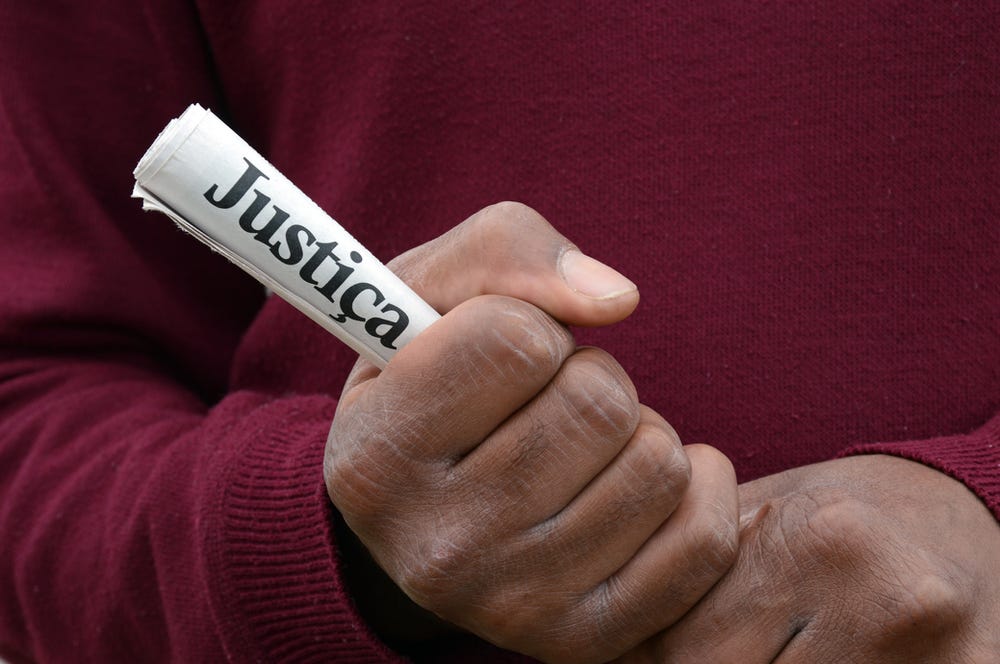Wrongful convictions have been a problem in America for many decades. From the Salem witch trials in the 17th century to the present day USA, innocent people have been convicted and sentenced to prison or even death for crimes they did not commit. Examine the history of wrongful convictions in America and look at how they have affected the U.S. justice system today.
20 March 2023 | Imran Siddiqui | Justice News | Washington D.C.
Wrongful Convictions Destroy Lives. Be Just. Give Justice
One of the earliest examples of wrongful convictions in America was the Salem witch trials in 1692. The trials were based on superstition and fear, and many people were accused of being witches and practicing witchcraft. Although there was no evidence to support these accusations, many innocent people were convicted and put to death.
In the 20th century, wrongful convictions became more common due to advancements in forensic science and technology. The advent of DNA testing in the 1980s has led to the exoneration of many individuals who were wrongfully convicted. DNA testing has also revealed flaws in eyewitness testimony, which is a common source of wrongful convictions.
One of the most high-profile cases of wrongful conviction in recent history is that of the Central Park Five. In 1989, five teenagers were arrested and charged with the rape and assault of a woman in Central Park. Despite no DNA evidence linking them to the crime and conflicting testimony from witnesses, the five were convicted and sentenced to prison. It wasn't until 2002, when DNA evidence exonerated them, that they were released.
The Central Park Five case highlighted some of the major flaws in the U.S. justice system, including racial bias and the use of coerced confessions. It also brought attention to the issue of wrongful convictions and the need for reform.
Today, organizations such as the Innocence Project and many other Innocence organizations work to exonerate wrongfully convicted individuals and bring attention to the flaws in the American justice system. Many states have also implemented reforms to address the issue of wrongful convictions, such as improving the reliability of eyewitness testimony and increasing access to DNA testing. But there are many who fall through the cracks because not all cases are based on DNA evidence and thus these innocence organizations do not assist them.
Thousands of people have been exonerated since the 1970s and thousands of lives have been destroyed, and despite these efforts, wrongful convictions still occur in America today. Not many in the government nor the people have the courage nor the will to stop it from occurring again. They are often the result of faulty evidence, false confessions, and misconduct by law enforcement or prosecutors. The consequences of a wrongful conviction can be devastating, both for the individual who is wrongly imprisoned and for society as a whole.
The history of wrongful convictions in America is complex and troubling. From the Salem witch trials to the Central Park Five case, innocent people have been wrongfully convicted for centuries in America, the “Land of the Free Home of the Brave”. While reforms have been implemented to address the issue, there is still much work to be done before the United States' justice system can be called fair and just for all.
What are the main causes of wrongful convictions?
Wrongful Convictions can occur for any reason that someone in power knowingly or unknowingly abuses that power for any personal gain, even at the cost of facing severe consequences in the aftermath. There are several causes of wrongful convictions -
Eyewitness Misidentification: Eyewitness testimony is one of the most common types of evidence used in criminal trials. However, studies have shown that eyewitnesses can be unreliable and may misidentify suspects due to factors such as poor lighting, stress, and racial bias.
False Confessions: False confessions occur when innocent individuals confess to crimes they did not commit. This can happen due to coercion, pressure from law enforcement, or mental illness.
Inadequate Legal Representation: Poor legal representation can lead to wrongful convictions, as defendants may not receive a fair trial or have access to effective counsel.
Misconduct by Law Enforcement or Prosecutors: Police or prosecutors may engage in misconduct, such as withholding evidence or fabricating evidence, in order to secure a conviction.
Flawed Forensic Science: Forensic evidence, such as fingerprints or ballistics analysis, is often used in criminal trials. However, this evidence can be flawed or misinterpreted, leading to wrongful convictions.
Racial Bias: Racism and discrimination can influence the decisions of police, prosecutors, judges, and juries, leading to the wrongful conviction of innocent individuals, particularly people of color.
It's important to note that wrongful convictions can occur due to a combination of these factors and that each case is unique. Addressing the issue of wrongful convictions requires comprehensive reforms to our criminal justice system, including improvements to eyewitness identification procedures, better legal representation for defendants, and increased accountability for law enforcement and prosecutors.
Who are the ones responsible for wrongful convictions?
Not many have been held responsible, primarily because of a twisted term called "qualified immunity" but there are several parties who can be responsible for wrongful convictions -
Law Enforcement: Police officers can contribute to wrongful convictions through misconduct, such as fabricating evidence, coercing confessions, or engaging in racial profiling.
Prosecutors: Prosecutors are responsible for presenting evidence in court and securing convictions. However, they can also contribute to wrongful convictions through misconduct, such as withholding exculpatory evidence or presenting false or misleading evidence.
Judges: Judges are responsible for ensuring that trials are fair and that evidence is presented in accordance with the law. However, they can contribute to wrongful convictions by allowing unreliable evidence or testimony to be admitted, or by failing to provide adequate oversight of the proceedings.
Juries: Juries are responsible for determining guilt or innocence based on the evidence presented in court. However, they can contribute to wrongful convictions through bias or by being influenced by unreliable evidence, coercion, or testimony.
Defense Attorneys: Defense attorneys are responsible for providing effective representation to their clients. However, inadequate legal representation can contribute to wrongful convictions if important evidence is missed or if the defendant is unable to present a strong defense.
It would be fair to mention here that maybe not all wrongful convictions are the result of intentional misconduct or malfeasance, but the majority of them have been proven to be so.
In some cases, wrongful convictions may be the result of mistakes or errors in judgment. However, it's important to hold responsible parties accountable for their actions and to implement reforms to prevent future wrongful convictions.
How can wrongful convictions be avoided?
Wrongful convictions can be avoided through a combination of systemic reforms and individual actions. Some key strategies for preventing wrongful convictions can be -
Improved Eyewitness Identification Procedures: Eyewitness misidentification is a major contributor to wrongful convictions. By implementing best practices for eyewitness identification, such as using double-blind procedures and providing clear instructions to witnesses, police and prosecutors can reduce the risk of misidentification.
Increased Access to DNA Testing: DNA testing is a powerful tool for exonerating innocent individuals who have been wrongfully convicted. By increasing access to DNA testing, more innocent individuals can be exonerated and prevent future wrongful convictions.
Increased Accountability for Prosecutors: Prosecutors play a critical role in securing convictions, but they can also contribute to wrongful convictions through misconduct. Increasing accountability for prosecutors who engage in misconduct, such as by imposing sanctions or discipline, can help deter future misconduct.
Reforming Interrogation Practices: False confessions are a common cause of wrongful convictions. By reforming interrogation practices, such as by requiring the recording of all interrogations, limiting the use of deception, and providing access to legal counsel, the risk of false confessions can be reduced.
Improving Legal Representation: Adequate legal representation is critical for ensuring that defendants receive a fair trial. By improving access to legal representation, providing funding for indigent defense, and requiring better training and qualifications for defense attorneys, the risk of wrongful convictions can be reduced.
Addressing Racial Bias: Racism and discrimination can influence the decisions of police, prosecutors, judges, and juries, leading to the wrongful conviction of innocent individuals, particularly people of color. By addressing racial bias through training and reforms, the risk of wrongful convictions can be reduced.
It's critical to understand that preventing wrongful convictions requires a systemic approach, involving all stakeholders in the criminal justice system to bring a change.
And if that change is desired by the people then they would work together to implement bold reforms, and somewhat ensure that innocent individuals are not wrongfully convicted and that justice is served.
| ,Imran Siddiqui is the managing editor at ,Justice News and the author of ,The JBlog. Imran's podcast ,FairPlay Challenging Wrongful Convictions airs on ,J107,Justice Radio









